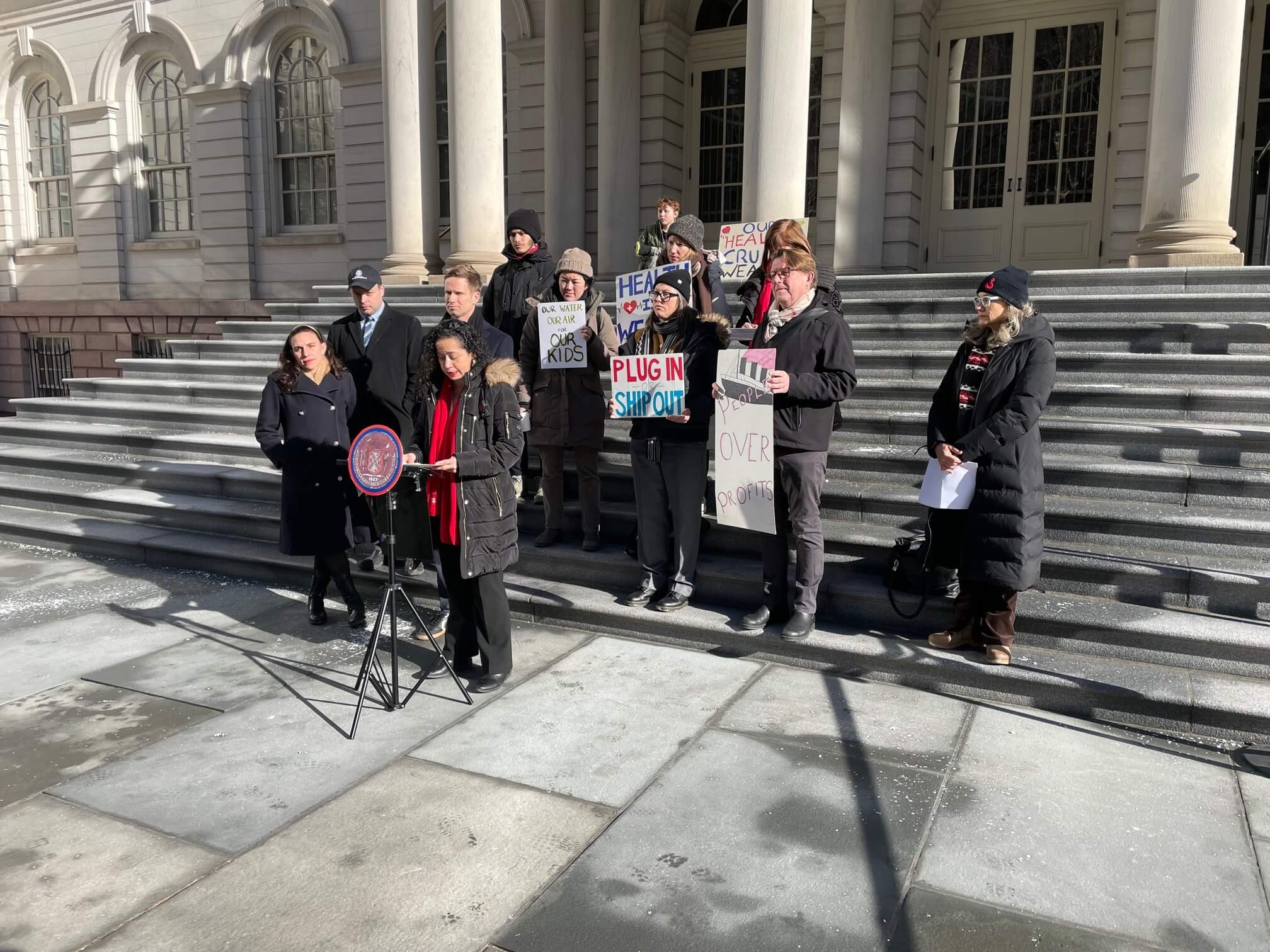| S |
hore power was brought to City Hall on the Ides of February when council member Alexa Aviles and advocates held a press conference on its steps.
The Our Air Water Act, sponsored by Aviles, would require cruise ships to plug into shore power while berthed in New York City. A cruise ship can stay in port for a day or two between stops, and electricity is needed to power all the onboard services. Without shore power, which is electricity generated someplace else and brought to the pier, fossil fuel is burned locally.
Other parts of the bill involves traffic and other issues.
“Introduction 4 uplifts long-standing, community concerns surrounding cruise terminal operations, stopping unnecessary pollution when vessels are docked and mandating planning for traffic mitigation when passengers are at port,” Aviles said. “This is a common sense, good government reform with stakes that couldn’t be higher –our climate goals, our streets, our air, and our water are on the line.”
It is reported that last year only one-third of the vessels visiting the Brooklyn Cruise Terminal used the Shore Power facility which was installed over six years ago.
Red Hookers have been told that a reason for that is because the system installed isn’t as compatible as it should be.
But perhaps the real reason cruise ships are avoiding using it is because it is cheaper to rely on heavy fuel oil than electricity-generated shore power.
“We can no longer believe multi-billion dollar cruise companies’ vague commitments that they will connect to the system,’” Armstrong said. This is why it has to be mandated legally.
Red Hook has other concerns that the bill is meant to address.
“New York City’s haphazardly executed cruise ships docking combined with the abject neglect of the cruise terminal for infrastructure and the absence of any planning for traffic mitigation or tourism attractions has dropped a mess of traffic on Red Hook and the small business economy,” said Susan Povich, co-founder of Red Hook Lobster Pound.
“The MSC Meraviglia, which arrived in April, 2023 carries 5,600 passengers and 2,500 in crew. It brought hours of gridlock resulting in bus re-routing, ambulances on the sidewalk, and unsafe walking and biking conditions.
“The EDC estimates an economic impact of $420 million per year from cruises. In Red Hook it is extractive. The Red Hook retail businesses and restaurants earn 80 percent of their revenue from May 1 through September when locals and tourists tend to take a day trip to Red Hook. This coincides with the heaviest cruising days. The congestion this past year during those peak months resulted in retail business declines across the entire neighborhood. My personal business could not open on time on numerous occasions the Meraviglia was docked because employees could not get to work.”
Upon arriving at the Brooklyn Cruise Terminal, tourists are greeted by walls featuring Marty Markowitz, whose term as Brooklyn borough president ended in 2013, a clear sign that updates are needed. With so many tourists coming to Red Hook, more needs to be done so local businesses can profit from the increase in tourism.
On top of the economic concerns, many residents are concerned about air quality in the community from cruise ships when they do not plug in and use shore power.









